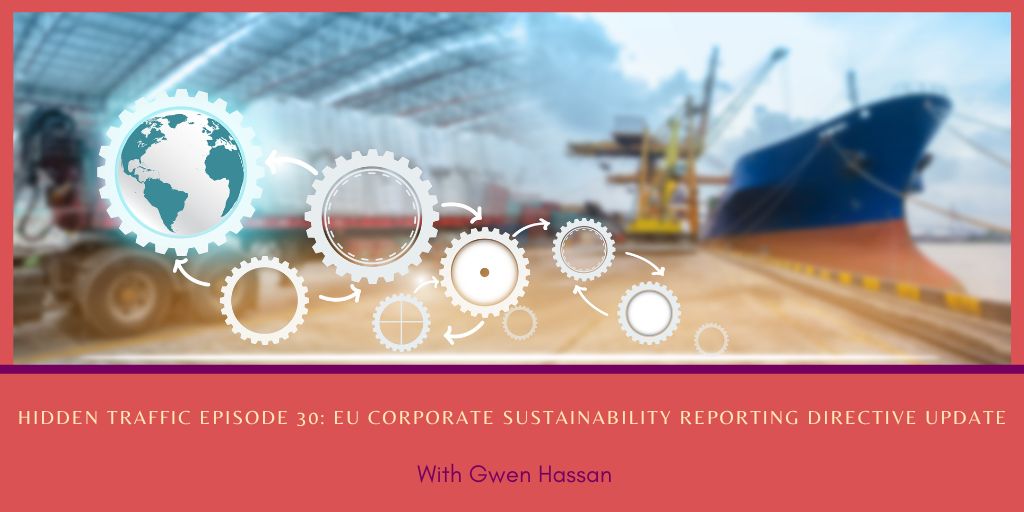
In this solo episode of Hidden Traffic Podcast, host Gwen Hassan dives into the new Corporate Sustainability Reporting Directive (CSRD) adopted by the European Council, which replaces the Non-Financial Reporting Directive (NFRD). The CSRD requires companies, both public and private, to report on a wide range of sustainability-related topics, including human rights, anti-corruption, modern slavery and human trafficking prevention, and environmental protection. Gwen will explain the impact of this directive on businesses and provide valuable insights into what companies can do to meet its requirements.
The CSRD directive aims to increase disclosure requirements for companies and prevent greenwashing. It will also require subsidiary level reporting and auditable information about supply chain, due diligence and human trafficking prevention. The CSRD applies to a larger number of public and private companies and will increase cost. Companies should start preparing as soon as possible to meet the requirements.
The CSRD requires companies to report on a wide range of sustainability-related topics – including human rights, anti-corruption, modern slavery and human trafficking prevention, and environmental protection – and provide information about their strategy, targets, governance policies, incentives and risks. The European Commission will adopt standards for reporting under the CSRD by June of next year. The directive will become effective on January 1, 2026, with a 2028 opt-out date for small and micro entities. Large entities and their parents will have to comply immediately.
The recent development of the Forced Labor Protection Act in Africa highlights the issue of outsourcing services to low-cost countries and the potential liability companies can face for labor violations and human trafficking in their supply chain. A former content moderator in Kenya filed a lawsuit against both the outsourcing company he worked for and Meta, a social media giant, alleging that he was subjected to viewing graphic and violent material that caused him post-traumatic stress disorder. The court ruled that the case against Meta can move forward, highlighting the need for companies to take responsibility for practices in their supply chain, even if they were not aware of them. This could result in a strict liability standard for many types of companies.
Resources
Gwen Hassan on LinkedIn






